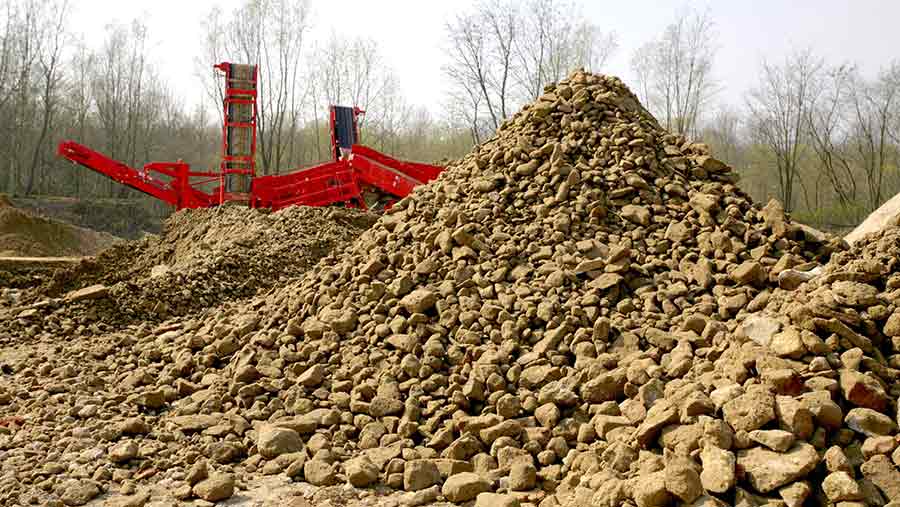£262,000 fine for illegally dumping 60,000t of waste
 © Jennifer Jacquemart/REX Shutterstock
© Jennifer Jacquemart/REX Shutterstock Two farmers and a haulier have been fined £262,000 after illegally dumping 60,000t of rubbish on two Cornwall farms.
Farmers David Stroud and Darren Pearce and waste haulier Andrew Duncan were caught following a detailed investigation by the Environment Agency.
The investigation revealed the three men had deposited demolition and construction waste in the Cornish countryside.
Truro Crown Court heard that as an experienced haulier, Andrew Duncan and his company Dunchaul would have been well aware of these conditions.
Over a period of more than two years, Mr Stroud and Mr Pearce were involved in the tipping of construction and demolition waste and soil at two different farms near Callington, Cornwall.
See also: New powers over illegally dumped waste
Nearly 66,000t of waste were deposited between the two farms – despite both sites being eligible for only 1,000t of sub-soil and 5,000t of concrete, rubble and bricks.
The waste deposited by Dunchaul was sub-soil that had been taken from development sites, so the 1,000t limit applied to the site, and the men should have abided by it.
Waste was dumped from June 2010 to September 2012.
At Axford Farm, one of the fields had poor drainage and Mr Stroud wanted to raise the level of the field to improve it.
The building of a Tesco store nearby produced a large quantity of excavation spoil and this was used for the project from June 2010.
The court heard there was no construction project, as a land-raising activity is not classified as “construction” and the tonnage deposited was way in excess of the 1,000t limit.
Some of the waste tipped on the raised field slipped into a nearby stream.
Dunchaul tipped at Axford farm for a year and when that had finished, made arrangements with Mr Pearce and started tipping on his Lower Trebrown farm.
The aim here was to help build farm tracks to connect one part of the farm with another across a deep and wooded valley. No planning permission was applied for in respect of this work.
“Waste crime can cause serious pollution to the environment, put communities at risk and undermines legitimate business and the investment and economic growth that goes with it.”
Sophie Unsworth, Environment Agency
From July 2011 to September 2012, some 37,219t of waste was deposited. According to waste transfer notes supplied by Dunchaul, only 20,565t were delivered.
Anyone who deposits waste on land needs to do so with the permission of the Environment Agency and comply with the conditions of an authorisation.
When waste is transferred, the law states it must be accompanied by waste transfer notes, which should be correctly completed, distributed and retained by all the parties involved.
The Environment Agency said the discrepancy between Dunchaul’s records and those of the other parties was clear evidence of a breach of waste transfer note rules.
Judge Carr said legislation was there to ensure waste was deposited in proper landfill sites, but this case was “a long-term avoidance of rules and regulations”.
Substantial amounts of waste went to two farms that were paid to receive the waste.
This was obviously done to increase the profitability of the company over a significant period of time and was well organised, said the judge.
Judge Carr said the only purpose for Mr Duncan was financial gain by undercutting legitimate hauliers. He wanted the fines to reflect that there is no profitability in illegal activity.
Sophie Unsworth, for the Environment Agency, said: “We take tough action against poor-performing companies and those who commit waste crime.
“Waste crime can cause serious pollution to the environment, put communities at risk and undermines legitimate business and the investment and economic growth that goes with it.”
Mr Pearce was earlier fined £7,500, and ordered to pay £7,500 costs for operating a regulated facility without a permit. He was also ordered to make a proceeds of crime payment of £59,500.
Mr Stroud was fined £5,000 for also operating a facility without a permit, with £5,000 costs and a £30,000 payment under proceeds of crime legislation.
Dunchaul Limited and Mr Duncan were fined £30,000, with costs of £20,000. Under proceeds of crime rules, Mr Duncan and his company were ordered to pay £100,000.
